Confederate Truths: Documents of the Confederate & Neo-Confederate Tradition from 1787 to the Present.
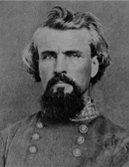

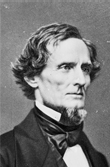
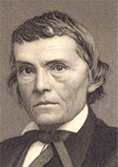


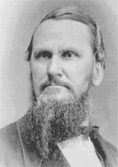
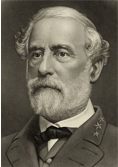
Was emancipation a good thing?
Was emancipation a good thing?
Confederate Veteran, Vol. 24 No. 2, February 1916, article pages 67-8, extract pages 67-68; continued, Vol. 24 No. 3, March 1916, article pages 112-116, extract pages 112-3. Excerpts from "The Failure of the Confederacy – Was It A Blessing?," by James M. M'Neilly. The Confederate Veteran was the official publication of the United Confederate Veterans, United Daughters of the Confederacy, Confederated Southern Memorial Association, and the Sons of Confederate Veterans. The article follows:
THE REASONS FOR GRATITUDE.
The grounds upon which we are called to be thankful for the success of the Union and the failure of the Confederacy are mainly reducible to three. They are: (1) The abolition of slavery; (2) the overthrow of the doctrine of State sovereignty, involving the right of secession; and (3) the wonderful material development of the South. The first is moral and social; the second is political and civic; the third is economic and industrial. And it is assumed that each of these is a real blessing to the whole country and that none of them could have been realized if the Confederate States had been succssful.
We shall, therefore, consider these consequences of the war as accomplished facts and examine the question whether they are really the blessings they are held to be, and especially whether they are blessings sufficient to compensate for the cost of them. And we shall also consider the probable effect of Confederate success on the condition of the negro, on the relations of the States to the general government, and on the development of the resources of the South; also the effect on the character of the people of the South.
WAS EMANCIPATION BEST?
By Northern and British writers and speakers the emancipation of the negroes is emphasized with endless glorification as the grandest and most beneficent result of the war. It is considered as a moral, political, and economic blessing, which removed a stain from our civilization, a curse from our life and character, and a hindrance to our prosperity.
For the negro it is claimed that he is delivered from a cruel and unjust bondage which degraded his nature and treated him as a brute. And it is said that now he is free to develop his manhood as he may choose, a right justly due every human being.
For the white man it is claimed that he is relieved of a great burden of responsibility and from the constant temptation to oppress a weaker race and, above all, that he is delivered from a system sinful and demoralizing in its nature.
Now, in considering the benefits, real or imaginary, of emancipation we are not dealing with slavery as it has existed among other peoples and as enslaving other races. But we are dealing with the slavery of the negro as he was part and parcel of a domestic system and as he was held to service by a white race of high Christian character. While there were cruel and unjust masters, they were the exceptions; and while there were features of the system that allowed cruelty and hardship, yet the effort was general to mitigate these evils. We are to remember too that the harsh features of the system were exaggerated by prejudice and falsehoods often uttered by those whose own sections maintained a system of so-called free labor more oppressive and degrading than was ever known in the South.
Still every candid Southern man will freely admit that there were serious evils connected with the system and that the best condition for a human being who is fitted to exercise it is liberty, and the desire for liberty is one of the noblest sentiments of man's heart. None were more anxious than many slaveholders to remedy the evils and to make the bondage a blessing to the slaves.
But the question that pressed upon the South when emancipation was urged as the remedy was complicated by conditions. Were the evils so inherent in the system that they could be eradicated only by destroying the system itself? Could the natural desire for freedom be met and satisfied only by freeing the negroes absolutely from all control by a master? Considering the nature of the negro, could his highest and best characteristics be best developed in freedom rather than in some form of subjection to the white man? On the other hand, would emancipation as demanded by the abolitionists bring with it greater evils to both races than a system of slavery with the confessed evils eliminated? Would it be possible for two races as widely different as Anglo-Saxon and Ethiopian to live together on terms of political equality under the same government without a constant war of races? The whole question of the relationship of the two races was one of the most difficult ever presented to a Christian people. And it was a question not to be solved by appeal to general principles of abstract right; but it required consideration of actual conditions for which we of the South were not responsible, conditions which were brought about by the action of the North as much as of the South and inherited by us.
The problem was far more momentous for the South than for the North. If the negroes were emancipated, they would necessarily remain in the South as a mass, and their numbers would bear a very considerable proportion to the number of whites. Admitted to equal political privileges, they would not only threaten the supremacy of the white race in the government, but they would imperil the civilization and material progress of the country. It would be exceedingly difficult to preserve purity in public and official life, for which the South had been noted, and at the same time to secure to the inferior race all the rights, privileges, and development to which it would be entitled as partaker of a common humanity. For this mass of ignorant negroes would be the ready tool of the demagogue and the corruptionist.
ABOLITION AGITATION.
This was the problem that required for its solution all the wisdom, firmness, patience, and kindness that could be exercised by the men of both sections. But the Puritan conscience of New England had accepted a theory of human rights which regarded slavery as "the sum of all villainies," a heinous sin against God and a crime against man. There began in that section and was carried on a crusade of the bitterest abuse of slaveholders, of vituperation and calumny against the institution of domestic slavery in the South. Yet New England traders had been the most active agents in introducing slavery in America in the early history of the country. Of course this bitterness aroused resentment, and it became impossible to settle the questions involved in the calm light of reason, and the result was the most terrible war of modern times and the abolition of slavery. It is complacently claimed that half a century of emancipation has shown that the fears and hesitancy of the Southern people were all unfounded and that the evils of freedom for the negro were imaginary. Indeed, it is held that the freeing of the negroes and the removal of the "curse of slavery" from the country justified all the sacrifice of life and treasure which the war cost and that the sufferings and humiliations of the South as a consequence of emancipation were the just punishment for its sin in holding human beings in bondage.
Is it demonstrated that the apprehensions of Southern men were foolish excuses for their holding on to their slaves? The end is not yet. Confessedly the negro problem is still one of the most portentous ever faced by any people. And while every lover of his country will pray for a safe and just solution, yet I believe that Puritan fanaticism has by the success of the Union armies placed the South over a volcano which may explode at any time and hurl forth its fiery lava streams and its poisonous gases to spread over and destroy the last traces of our kindly civilization and desolate our fair land with the horrors of a war of races. Or, more terrible still, it may result in the degeneracy of the white race by mingling its blood with the inferior race, which would be the legitimate outcome of the fanatical theory of rights.
PRESIDENT LINCOLN'S INTERPRETATION.
As to the true interpretation of God's purpose in the war and in our defeat, it is held by the abolitionists that Mr. Lincoln expressed it most clearly in his second inaugural. In that address with rather hysterical rhetoric the President said: "If all the wealth piled by the bondsman's two hundred and fifty years of unrequited toil shall be sunk and every drop of blood drawn with the lash shall be paid by another drawn with the sword, as was said three thousand years ago, so still it must be said: 'The judgments of the Lord are true and righteous altogether.'"
This charge that the wealth of the South was the fruit of the unpaid labor of the negroes was one of the oft-repeated indictments of our system of slavery. Yet a New England author of ability, a professor in a great university, who quotes this utterance with approval, has the candor to say in another part of his book: "A very considerable portion of free laborers have never been able to earn more money or to acquire more property than is demanded by the actual and pressing needs of daily existence common to all mankind—the need of food, clothes, and lodging. Now, there can be no question that in return for their services the Southern slaves generally had these needs supplied. They were fed, they were clothed, they were lodged. What is more, they were lodged, fed, and clothed, to all appearances, rather better than they could have lodged, fed, and clothed themselves on any wages which they could have earned." (Prof. Barret Wendel's "Liberty, Union, and Democracy," pages 154, 307. Scribner's.)
I believe that a fair examination would show that no working class the world over was better paid for unskilled labor. Several years ago, while on a visit in Belfast, Ireland, I was entertained by a noted abolitionist. He asked me to tell him what the negroes had to eat and to wear. When I told him, he seemed astonished and said: "No common laborers in this country are so well provided for." I had occasion also on my travels in Europe to see something of the mode of living and the general lack of comfort among the peasantry, especially in Southern Europe, and it was my conviction that the slaves of the South never lived so poorly. A negro would have starved on the wages of these laborers in Italy.
(Continued in March number)
(Continued from February number.)
WHAT HAS EMANCIPATION DONE FOR THE NEGRO?
Nearly half a century has passed since Mr. Lincoln issued the Emancipation Proclamation, which was welcomed by the abolitionists as a long-delayed act of justice to a downtrodden and cruelly oppressed race. The result of the war confirmed the Proclamation and placed in the South four millions of citizens whose only means of support was their daily labor, and the only constraint that had required and directed that labor was removed. The freedman was at liberty to work or not at his own sweet will; and, like children, their will was oftener to play than to work. Their condition, of course, appealed to the heart of philanthropy, and throughout the North there was a sincere desire to help and an honest effort to fit the new citizens for citizenship.
Unfortunately, the prevailing type of philanthropy sought to compensate the negro for his long years of "unrequited toil," and so made him feel that, as his labor had made the wealth of the South, he was entitled to possess it without further "toil." There was much of this philanthropy that had ears only for the extravagant falsehoods about the horrors of slavery, but had no eyes to see nor tears to shed over the injustice and oppression in the mines and mills of the North, making white women and children more abject and miserable slaves than negroes had ever been. And as a consequence the Southern people, who were best fitted to help the freedman, were treated as enemies to him, and they also came to look on all Northern philanthropy as only hypocrisy.
Under these conditions let us note what has been done. The political benefactors of the negro gave him the ballot and secured for him theoretical equality and civil rights under the laws. This has been supplemented by large and much-heralded gifts in money by Northern men for educational purposes. They have also taught him that they are the saints and his best friends and that he is their equal socially. They for a long time from a distance coddled him with their tender solicitude for his rights. Some even went so far as to hope for the day when "black heels should trample on the necks of haughty Southern white people." In a word, the victorious North, trying for years to compensate the negro for imaginary wrongs, would bestow on him, even force on him, without regard to his fitness or capacity, every right and privilege which the white man enjoys.
On the other hand, the Southern States have shown themselves real friends by expending over one hundred and twenty-five millions. of dollars on the education of the negro, and that money was raised by taxes freely levied on themselves by an impoverished people. While they have resisted with indignation any assertion, of social equality or intermingling of races and are determined that the political control of the government shall be in the hands of white men, yet they have given the negroes every facility for work and for gaining property.
RESULTS.
What have been the results on the condition and character of the negroes as a race? Has their physical and moral improvement been commensurate with the vast sums spent on them by philanthropy and by legal enactment? The half century of freedom has been a period of wonderful advancement, of achievements in the arts and sciences, in discoveries and inventions, of marvelous progress in wealth and material prosperity. This is very marked in the South, and it is largely attributed to the deliverance of white and black from the "curse" of negro slavery. It is assumed that it could never have come to us if the Confederacy had succeeded.
Far be it from me to minimize what many negroes have accomplished or to question the sincerity of the efforts made by Northern people in their behalf. I can rejoice in the educational facilities that have been provided, and I can honor the work of such leaders of their people as Booker Washington and W. H. Councill. But the question is, Are they as a race as well off physically, morally, and spiritually as they were in slavery? And would the actual benefits that have come to individuals not have come to the race under the conditions established by the success of the Confederacy? It seems to me that the vast majority have not shared the material advantages of the new order and are not as comfortable physically as they were under the old system of "unrequited toil."
It cannot be truthfully charged that this backwardness is due to the Southern white man's unfair dealing with or oppression of the negro; for it is notorious that the doors of opportunity to make a living are more open to the negro in the South than they are in the North, and there has been no bar to any decent, industrious negro gaining and owning as much property as he can honestly gain. Moreover, the disposition of our people to help the weaker and backward race has been shown in their refusal to cut down the appropriations for negro schools to the amount of taxes paid by the negroes themselves.
LEGAL RIGHTS.
Much is made of the fact that certain rights are guaranteed now to the negro by the law of the land. Civil rights bills, constitutional amendments, are emphasized as evidences of race progress. But it is true everywhere, North as well as South, that when two widely different races live under the same laws, whatever rights the law may accord the weaker, it can actually exercise these rights only as the stronger will allow, and in any case of conflict the weaker is helpless. The dealings of the white man of the United States with the Indians is a case in point. No treaty nor legal enactment has prevented the paleface from appropriating the red man's lands on his own terms. I do not say it is right; but it is a fact.
Now in the case of the negro the law of the land has supplanted the old relations; and the fact that he stands as an equal before the law seems to release the white man from the higher law of noblesse oblige, which was largely recognized by the slaveholder in the former days. Then cruelty to helpless and dependent negroes was counted dishonorable and cowardly, and public opinion condemned it. Moreover, the higher law that exacted kindness to the weak was reenforced by the sentiments of affection subsisting between master and servant.
Now the tendency of the present generation of negroes is to look upon the Southern white man as an enemy and to assert their rights aggressively, if not insolently, being too often put up to it by politicians or pseudo-philanthropists. One must recognize the danger when race prejudice is aggravated by contempt on one side and hatred on the other.
SPIRITUAL CONDITIONS.
But whatever may be the material results of emancipation, a more important question is: What has been its effect on the character and spiritual condition of the race? I believe that, however great may be the evils of man's earthly condition, whether as slave or as freedman, there is a remedy in the application of the principles of the gospel of our Lord Jesus Christ. If his Spirit control, whether white man or black, it is the power to solve difficulties and bring harmony between the races.
But here the difficulties are multiplied and the questions complicated by the defects of the religious teachings and influences which direct the spiritual life of the negro. Believing that spiritual interests are of chief importance to the real welfare of any race or people, we inquire whether the negro has been helped or harmed spiritually by emancipation. Has his character in the sight of God been elevated or depressed by the religious instruction and training he has received as a freeman? Is he a higher type of man now than he was as a slave? It is true that probably one-third of the race are members of their own Churches; and as a rule, and naturally, they prefer the ministrations of their own preachers, however ignorant, to the service of Southern white ministers.
I recognize with thankfulness that many of their religious leaders are men of piety and learning, and I believe that we, the Southern whites, should do all we can for the spiritual progress of the mass of the negroes. But the question we are considering is, Was emancipation best for their spiritual interests? And if the Confederacy had succeeded, would not those interests have been better cared for? While there are many sincere Christians among them whose lives are consistent, yet generally the profession of religion with them has small influence on their lives and characters. The tendency to return to the dark superstitions and the strange rites of their barbarous ancestors seems to be marked where they are left to their own exercise of their religious ideals and are separated most from the influence and contact with the white people.
THE OLD-TIME RELIGION.
In the thirty or forty years just before the war the negroes had the ministrations of able white ministers on the great plantations and in the families of their masters. The Southern Churches of all denominations recognized their responsibility for the spiritual instruction and training of the slaves, and as a consequence the system of plantation missions of the Methodist Church from 1829 to 1865 led probably a million slaves to Christ as a Saviour. Other Churches were diligent in the same work, the Baptist Church and the Methodist Church at the close of the war having each about a quarter of a million communicants. The amount expended by the white people of the South in this period for negro evangelization was about four millions of dollars. The present generation of the South seem ignorant of what was done by their fathers for the bringing of the slaves to Christianity. It is probable that the real spiritual condition of the half a million slave communicants was superior to that of the three millions of freedmen Church members of to-day, with the wild orgies and superstitious rites of so many of them.
There is no doubt in the mind of the Southerner who knew the old order that in the elements that go to make high and true character the present generation of negroes, with their pertness, conceit, idleness, shirking of responsibility, lack of trustworthiness, is distinctly inferior to the old-time slave, with his affection for his "white folks," his pride in the family of which he was a part, his faithfulness to a trust, his loyalty and devotion to the interests of the family, his instinctive sense of propriety, and his fine manners. The "mammies" and "daddies," the "uncles" and "aunties" of those days deserved all the confidence and affection given them by every member of the household.
As a general rule, the slavery of the South was a life of patriarchal simplicity, with contentment and peace, free from the sharp competitions of trade and the struggle for a living. I seriously doubt if any advantage of freedom as now exercised, with its anxiety for food and raiment and shelter, can compensate for the loss of the old-time relationship. Now it is jealousy and suspicion, breaking out in frequent conflicts with assassinations and lynchings.
PRESENT CONDITIONS.
Emancipation is an accomplished fact, and there is no desire on the part of the Southern people to reduce the negroes to bondage again even if such a thing were possible. The theory of liberty or of human rights which the abolitionists asserted as a ground for emancipation triumphed. That triumph forced on the country the most difficult and dangerous of all political and social questions, the adjustment of the relations of two races as widely different in physical, mental, and moral characteristics as it is possible for human persons to be.
After all the years of endeavor and the trying of all kinds of nostrums, constitutional amendments, military interference, educational foundations, Church amalgamation, the Northern people, who are honest and who assumed to be the divinely appointed guardians of the negro, are beginning to realize their failure; and after having forced the issue on the South, after deceiving the negro with their false professions of love for him, after filling his mind with false ideas of his rights, after teaching him that as the ward of the nation he was entitled to a support, after destroying his confidence in the Southern white man, they now complacently announce that it is the South's problem, and it is magnanimously turned over to her to settle.
We should be glad to have the intermeddling cease and to address ourselves to the question. But there are two influences that refuse to keep their hands off. One is the Puritan conscience that insists on its theory of liberty and human rights being preserved intact; the other is the Northern politician to whom the negro vote is a political asset that must under no circumstances be eliminated; and to both the Fifteenth Amendment is the sum of righteous philosophy and the palladium of political liberty. Between them they have taught the masses a theory of liberty which is the source of the anarchy that is growing all over our land.
Surely we have no reason to rejoice that the triumph of the Union armies freed the negroes and laid upon us these dangerous and difficult questions to settle.